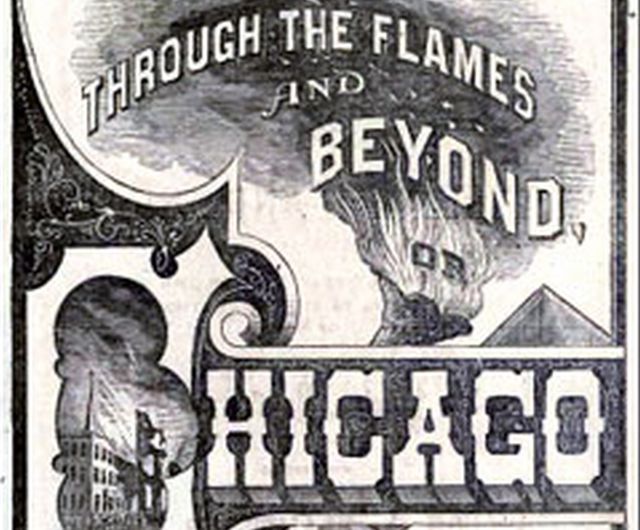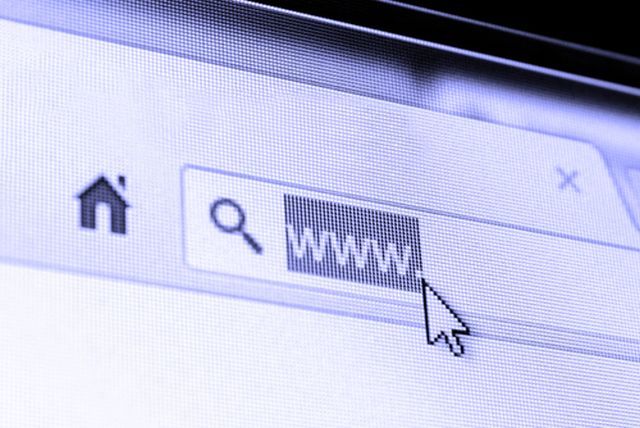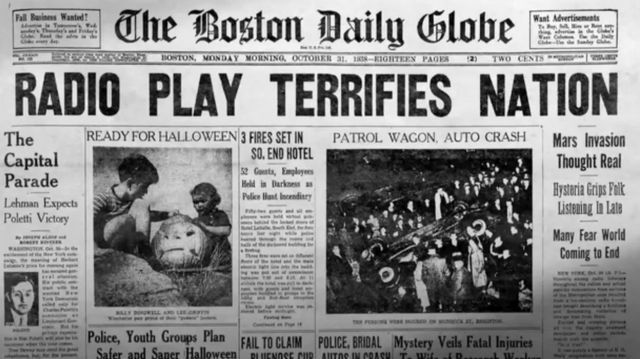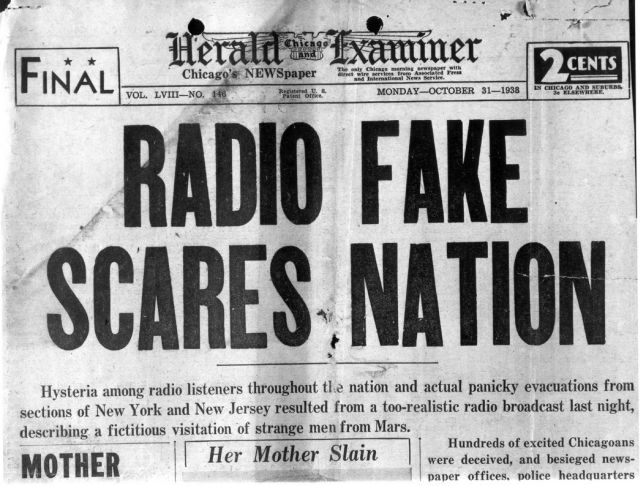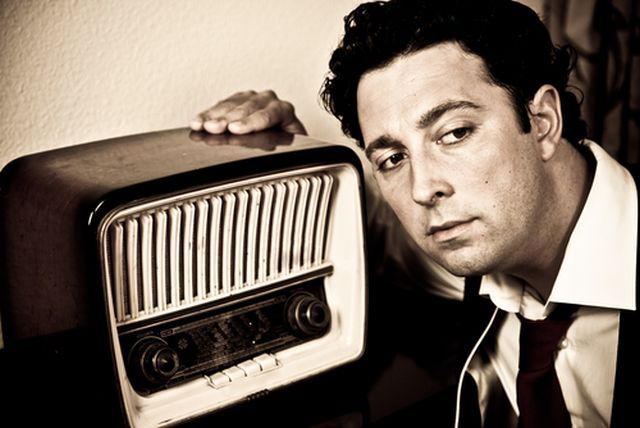Throughout human history, rumors and stories started and spread like wildfire. The Internet has only magnified this strange phenomenon.
Why do people like to make up exaggerated stories, and why do so many other people like to believe those stories and share them? Some psychologists say they are the manifestation of human fears, and our collective effort to manage them.
The Great Chicago Fire
Modern myths and exaggerations existed long before the Internet. Case in point, the Great Chicago Fire of 1871.
This was a fire that destroyed over 3 square miles of the city of Chicago – a fire that raged on for two days, killed hundreds of people, and left hundreds of thousands homeless.
As though the tragedy itself wasn't bad enough, a news reporter made the situation even worse by either exaggerating or completely making up a story about the cause of the event.
Michael Ahern, a reporter for the Chicago Republican, wrote a story that a cow owned by Kate O'Leary kicked over a lantern and set the family barn ablaze, igniting the two day fire.
It was a story that gave the citizens of Chicago a place to target their anger: a scapegoat. She was an Irish Catholic immigrant, and disliked by many, so it was an easy story for many to believe. However, years later in 1893, Ahern admitted that he had completely fabricated the cow angle just to create a more interesting story.
Unfortunately, the true cause of the fire was never uncovered, but that hasn't prevented countless stories spreading about how the Great Chicago Fire started by O'Leary's cow.
4 False Beliefs That Spread Online
You could claim that people back then didn't know any better. Maybe they were more susceptible to believing things they read, because they didn't have the Internet to research the truth. However, that couldn't be further from the truth.
With the Internet, such made-up claims not only continue popping up, but they spread across the world like never before. For some reason, people still can't be bothered to check whether or not these stories are really true. Hint: None of them are.
1. People only use 10% of their brain.
Like most modern myths, no one is really certain who started it. The claim that people only use 10% of their brain – recently used in the poorly-researched plot of the 2014 movie Lucy – has several possible sources.
Some say the claim first came from journalist Lowell Thomas, who penned the preface to Dale Carengie's book Win Friends and Influence People – he wrote that the average person, "develops only 10 percent of his latent mental ability."
Some claim Albert Einstein said it, even though the folks at the Albert Einstein Archives say that no such quote exists. Others say neurosurgeon Wilder Penfield started the myth, with his discovery in the 1930s of a "silent cortex" in the brain that he believed remains dormant and unused (scientists later discovered that it does not).
Yet another alleged source of this silly 10% claim is philosopher William James, who wrote in his 1908 book The Energies of Men that people "are making use of only a small part of our possible mental and physical resources".
The good folks at the University of Washington are trying to set the record straight by publishing a web page teaching children how people actually use 100% of their brains – proven by the fact that when one part of the brain fails, another area is capable of taking over.
"It seems reasonable to suggest that if 90% of the brain was not used, then many neural pathways would degenerate. However, this does not seem to be the case. On the other hand, the brains of young children are quite adaptable. The function of a damaged brain area in a young brain can be taken over by remaining brain tissue."
Princeton Doctoral candidate Sam McDougle told MinnPost reporter Susan Perry that, "The brain is an organ. Its living neurons, and the cells that support them, are always doing something."
This myth still runs rampant throughout society. Whoever served as scientific consultant to producers of movies like Lucy or Limitless (if there were any) were obviously incompetent.
There was one benefit to the release of the movie Lucy. It prompted a number of journalists to research the premise of the film and point out the fact that the myth of the 10% brain use is false. However, a search of Facebook and Twitter quickly reveals that not everyone knows this.
2. Women Earn 70 Cents for Every $1 a Man Earns
One problem with debunking modern myths is that sometimes you're also dismantling a piece of a belief system that some people have been clinging to for a good part of their lives.
Nowhere is this more true than the modern myth that women earn roughly 70 cents for every dollar a man earns. This number ranges between 70 up to 78, depending on the source. It's repeated by news media and especially by politicians.
In fact, it appears that the numbers broken down by state are amazingly identical, right down to the penny! Every women in every state is earning 70 cents on the male dollar, apparently.
No matter where you turn, no matter which activist you're talking to, they all read from the same cited claim that has been spread from person, to person, to person for many years – it doesn't even change to take inflation into account!
This obviously goes against common sense – but in matters such as this, where there are other very real biases throughout society that affect women, no one dares to question whether or not such a claim is true for fear of sounding insensitive to a real issue.
Thankfully not everyone, as evidenced by a 2012 Huffington Post article by Christina Hoff Sommers, where she dug a bit further into this modern myth and uncovered the truth. Women are doing much better in the workplace, financially, than those sordid numbers would make you believe.
As Sommers explains, the original number doesn't take into account any of the common sense things you'd normally consider when talking about pay. It doesn't consider job type. It doesn't consider experience or length of time in the workplace. It doesn't even consider number of hours worked!
The AAUW has now joined ranks with serious economists who find that when you control for relevant differences between men and women (occupations, college majors, length of time in workplace) the wage gap narrows to the point of vanishing.
The AAUW actually removed the report from their website after Sommers brought attention to the findings, however you can still locate it in the archives [Broken URL Removed].
The 70 percent myth is also debunked by a 2009 Department of Labor analysis, which Sommers points out provides some of the reasons for any disparity that might be found in a particular job or workplace. The report explained that the disparity, as Sommers explains:
"...'may be almost entirely the result of individual choices being made by both male and female workers.' In the past, women's groups have ignored or explained away such findings."
So next time you hear someone else spread this story, make sure to point them to the AAUW report, and of course Christina Hoff Sommers article.
Common sense alone should be enough, really. If decades worth of offshore oursourcing has tought us anything, it's that corporations don't care about gender, race or nationality – they care about the bottom line. As Sommers points out:
"...if it were really true that an employer could get away with paying Jill less than Jack for the same work, clever entrepreneurs would fire all their male employees, replace them with females, and enjoy a huge market advantage."
This hasn't happened, yet this remains one of the most virulent web myths still spread online, with no sign of abating.
3. Al Gore Claimed He Created the Internet
I was around during the time Al Gore was running for president, and I distinctly recall the debate where he uttered those fateful words that would forever be mocked throughout geek circles for decades to come.
It's still an ongoing joke to mock Al Gore for claiming to have invented the Internet. I've done it plenty of times myself. You'll see this claim quoted constantly across blogs and social networks nearly every day.
I mean it's endless and unforgiving. I think if anyone could possibly understand what Kate O'Leary felt like to become the center of a modern myth, it's Al Gore.
The thing is, it's not even true.
He never said he "invented" the Internet during that fateful debate. He said:
"During my service in the United States Congress, I took the initiative in creating the Internet."
His mistake was in his wording. If he had only said something like, "I joined the effort to help create the Internet" then we may not even be talking today. The truth is that Al Gore was a central player in much of the funding that drove what would eventually become what we now know as the Internet.
He was the creator of the High-Performance Computing and Communications Act of 1991, which you can read yourself. It set aside significant funds – $600 million – which was eventually used to create the NREN (National Research and Educational Network).
The Act also led to the formation of the National Information Infrastructure (NII), which everyone started calling – yup, you guessed – "the Information Superhighway".
So, contrary to popular belief that Al Gore claimed to have invented the Internet, Al Gore only claimed that he took the initiative in creating it. If creating the act that provided $600 million to upgrade the NSFNet backbone with supercomputer centers, and to fund the development of the NCSA Mosaic browser, is not considered "taking the initiative in creating the Internet", I don't know what is.
So, while the flurry of Al Gore Internet jokes is sure to continue on into the foreseeable future, now you can rest assured that when you don't laugh at the joke, only you will understand why it's not funny.
And anyway, at least the poor guy established his place in the Internet Hall of Fame.
4. War of the Worlds Did Not Cause Panic
A common story that gets shared across both blogs and mainstream media websites alike is the legend surrounding the radio broadcast of H.G. Wells' The War of the Worlds.
As the story goes, once the broadcast got through the part of the story where the aliens started attacking and killing citizens, and that the military had engaged and also got massacred, panic ensued.
Stories written all across the web describe how, because they had been listening to the "Chase and Sanborn Hour", they actually tuned into the station late, missing the introduction to the story. Allegedly, thinking they were hearing actual news reports and interviews, citizens "all across the United States" called radio stations, local emergency services and their own local newspapers.
Some stories also claim people fled their homes in cars, went to churches to pray, and even held wet towels over their faces as impromptu gas masks. There were miscarriages, hysteria and unconfirmed deaths.
National Geographic reported on its website:
"Thousands of people, believing they were under attack by Martians, flooded newspaper offices and radio and police stations with calls, asking how to flee their city or how they should protect themselves from "gas raids." Scores of adults reportedly required medical treatment for shock and hysteria."
The History section of About.com makes the same claims:
"Thousands of people called radio stations, police and newspapers. Many in the New England area loaded up their cars and fled their homes. In other areas, people went to churches to pray. People improvised gas masks. Miscarriages and early births were reported. Deaths, too, were reported but never confirmed. Many people were hysterical. They thought the end was near."
Numerous other sites across the web portray the history the same way. And plenty of folks of social media portray just how prevalent this belief is.
It was absolute mayhem.
Or was it?
One of the best debunking pieces ever written on this came from Slate in an article titled The Myth of the War of the Worlds Panic. In it, authors Jefferson Pooley and Michael J. Socolow describe how the myth of the War of the Worlds panic is just that – a myth. It never happened, at least not anywhere near the scale reported by newspapers at the time.
Why would newspapers want to blow the situation out of proportion? Why would they want to make it appear that the entire world had panicked after the broadcast, when in reality nothing of the sort had happened? As usual, it boiled down to money. Advertising, to be exact.
"Radio had siphoned off advertising revenue from print during the Depression, badly damaging the newspaper industry. So the papers seized the opportunity presented by Welles’ program to discredit radio as a source of news. The newspaper industry sensationalized the panic to prove to advertisers, and regulators, that radio management was irresponsible and not to be trusted."
Just as in the case of the Chicago fire, the goal was sensationalizing the situation, and in the case of this radio broadcast, the reporters did so in a very big way.
What did the "panic" actually look like?
"In 1954, Ben Gross, the New York Daily News’ radio editor, published a memoir in which he recalled the streets of Manhattan being deserted as his taxi sped to CBS headquarters just as War of the Worlds was ending. Yet that observation failed to stop the Daily News from splashing the panic story across this legendary cover a few hours later."
As more and more people repeated the stories spread by the newspapers, the "panic" became an accepted part of the country's history - even though it never actually happened.
In reality, according to the C.E Hooper ratings service, only 2% of the radio audience actually listened to the program at the time – 98% of the radio audience was listening to something else. According to a CBS survey just a day later, most of the people listening to the broadcast didn't take it seriously.
"CBS commissioned a nationwide survey the day after the broadcast, and network executives were relieved to discover just how few people actually tuned in. 'In the first place, most people didn’t hear it,' CBS’s Frank Stanton recalled later. 'But those who did hear it, looked at it is as a prank and accepted it that way.'"
What it amounted to was a battle of news mediums, and the fear that newspaper owners had about the new and popular news medium of radio. Ironically while accusing radio of being an irresponsible purveyor of news, the publications following the broadcast made it clear to the public that it was actually the newspaper that was irresponsible with reporting the news.
Sadly, to this day, this tale continues to spread from person to person throughout the Internet. As the latest medium for communication and news, the Internet now serves as the platform for misinformation or wholly fabricated lies to plant roots, sprout up, and grow into a beast of epic proportions that is nearly impossible to kill.
Do you know of any other common myths that are made worse by the Internet? Share your own stories and thoughts in the comments section below!
Image Credits: Word myth via Shutterstock, Zai Aragon via Shutterstock, Oleksiy Mark via Shutterstock, Tomislav Pinter via Shutterstock, stocklight / Shutterstock.com, aslysun via Shutterstock, Blend Images via Shutterstock



